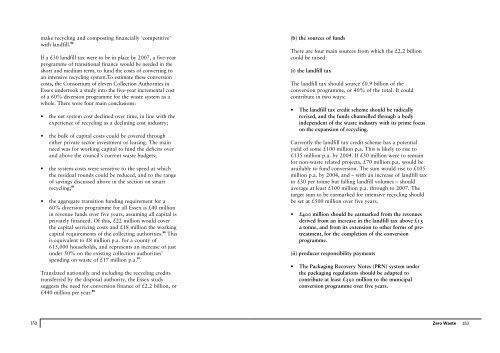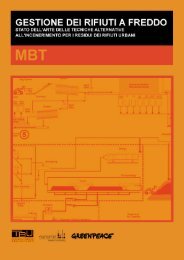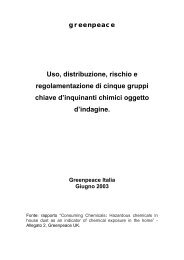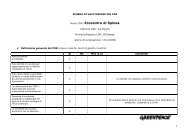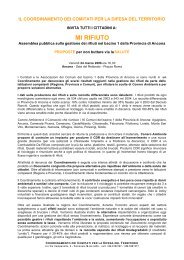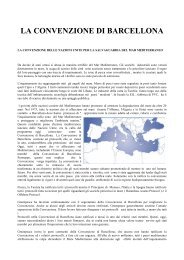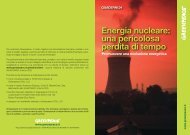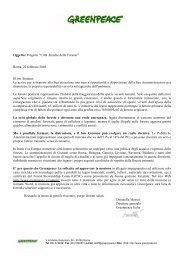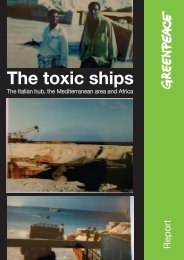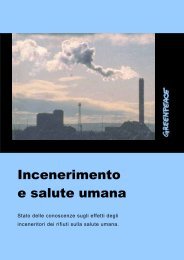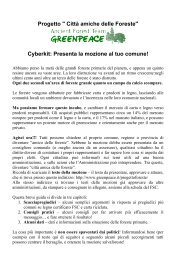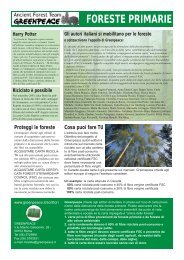Zero Waste by Robin Murray, Greenpeace Environmental Trust 2002
Zero Waste by Robin Murray, Greenpeace Environmental Trust 2002
Zero Waste by Robin Murray, Greenpeace Environmental Trust 2002
You also want an ePaper? Increase the reach of your titles
YUMPU automatically turns print PDFs into web optimized ePapers that Google loves.
make recycling and composting financially ‘competitive’<br />
with landfill. 94<br />
If a £30 landfill tax were to be in place <strong>by</strong> 2007, a five-year<br />
p rogramme of transitional finance would be needed in the<br />
s h o rt and medium term, to fund the costs of converting to<br />
an intensive recycling system.To estimate these conversion<br />
costs, the Consortium of eleven Collection Authorities in<br />
Essex undertook a study into the five-year incremental cost<br />
of a 60% diversion programme for the waste system as a<br />
whole. There were four main conclusions:<br />
• the net system cost declined over time, in line with the<br />
experience of recycling as a declining cost industry;<br />
• the bulk of capital costs could be covered through<br />
either private sector investment or leasing. The main<br />
need was for working capital to fund the deficits over<br />
and above the council’s current waste budgets;<br />
• the system costs were sensitive to the speed at which<br />
the residual rounds could be reduced, and to the range<br />
of savings discussed above in the section on smart<br />
recycling; 95<br />
• the aggregate transition funding requirement for a<br />
60% diversion programme for all Essex is £40 million<br />
in revenue funds over five years, assuming all capital is<br />
privately financed. Of this, £22 million would cover<br />
the capital servicing costs and £18 million the working<br />
capital requirements of the collecting authorities. 96 This<br />
is equivalent to £8 million p.a. for a county of<br />
615,000 households, and represents an increase of just<br />
under 50% on the existing collection authorities’<br />
spending on waste of £17 million p.a. 97 .<br />
Translated nationally and including the recycling credits<br />
transferred <strong>by</strong> the disposal authority, the Essex study<br />
suggests the need for conversion finance of £2.2 billion, or<br />
£440 million per year. 98<br />
(b) the sources of funds<br />
There are four main sources from which the £2.2 billion<br />
could be raised:<br />
(i) the landfill tax<br />
The landfill tax should source £0.9 billion of the<br />
conversion programme, or 40% of the total. It could<br />
contribute in two ways:<br />
• The landfill tax credit scheme should be radically<br />
revised, and the funds channelled through a body<br />
independent of the waste industry with its prime focus<br />
on the expansion of recycling.<br />
Currently the landfill tax credit scheme has a potential<br />
yield of some £100 million p.a. This is likely to rise to<br />
£135 million p.a. <strong>by</strong> 2004. If £30 million were to remain<br />
for non-waste related projects, £70 million p.a. would be<br />
available to fund conversion. The sum would rise to £105<br />
million p.a. <strong>by</strong> 2004, and – with an increase of landfill tax<br />
to £30 per tonne but falling landfill volumes – should<br />
average at least £100 million p.a. through to 2007. The<br />
target sum to be earmarked for intensive recycling should<br />
be set at £500 million over five years.<br />
• £400 million should be earmarked from the revenues<br />
derived from an increase in the landfill tax above £15<br />
a tonne, and from its extension to other forms of pretreatment,<br />
for the completion of the conversion<br />
programme.<br />
(ii) producer responsibility payments<br />
• The Packaging Recovery Notes (PRN) system under<br />
the packaging regulations should be adapted to<br />
contribute at least £350 million to the municipal<br />
conversion programme over five years.<br />
152<br />
<strong>Zero</strong> <strong>Waste</strong><br />
153


